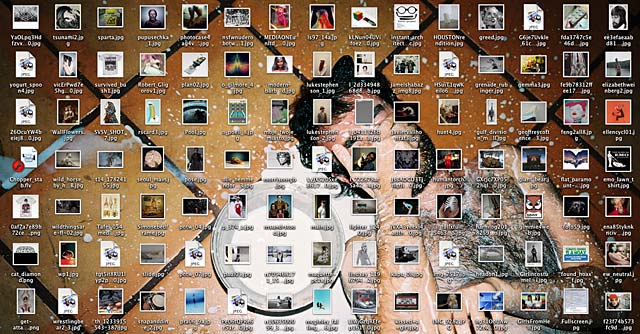This can be interesting: The Pirate Bay is sharing 3D models for printing, so far only using the category Physibles on the original site. Right now there are mostly dupes of stuff from Thingiverse, and seeing as the interface is the usual forum link-dump there’s no preview or version control, but it’s still an interesting development for two reasons: For one, once 3D sharing sites will start to be harassed on IP-issues, there will be be a chilling effect on the distribution and usage of models, so we’ll need a safe haven for that. TPB has proved rather resilient.
(Further on, it’s easy to foresee 3D-printers which won’t print non-signed models, taxation on printing materials used privately, consumer protection laws which are stretched to encompass personal fabrication, etc, so there will have to be forums to discuss circumvention and open source practices)
Think about it this way: If piracy of IP today mostly is a concern for a few companies in the western world – regardless if it’s clothes, movies or medicine — what will happen when the manufacturing industries start to feel threatened by the infringement on their manufacturing prerogative? Previously, someone ordered 1000 Gucci bags from your factory and you spat them out, regardless if the person you ordered them from was a pirate or Gucci; either way, you had a business model – making stuff. If now the pirates are not only threatening the IP of some of your clients, but also the necessity of including you in their piracy, you’re suddenly standing with a factory without orders.


I think that fabbing can be a boon to humanity in many ways, but as always with disruptive technologies there will be a huge backlash, and the sooner we can build infrastructures for dealing with reactionary policies the better. Which ties in with the second reason this is interesting, which has to do with the development of a public discourse on the subject.
So far the ideas surrounding fabbing are best described in science fiction and by those in the field – Bruce Sterlings Shaping Things comes to mind — but they’re slowly gaining mainstream attention; Petter told me he saw 3D printing mentioned in a lifestyle & decoration magazine which usually is concerned with spring colours and feelgood food. Just as in art though, the debate will sooner or later come down to what we are printing, rather than that we are printing, and if TPB can be a platform to foster experimentation with fabbing, we’ll have another generation which is used to remix and copy and paste and mash things up, only now with physical objects rather than media. But for that to happen there needs to be practice and debate, and tpb putting it’s weight behind the issue can only accelerate that.






